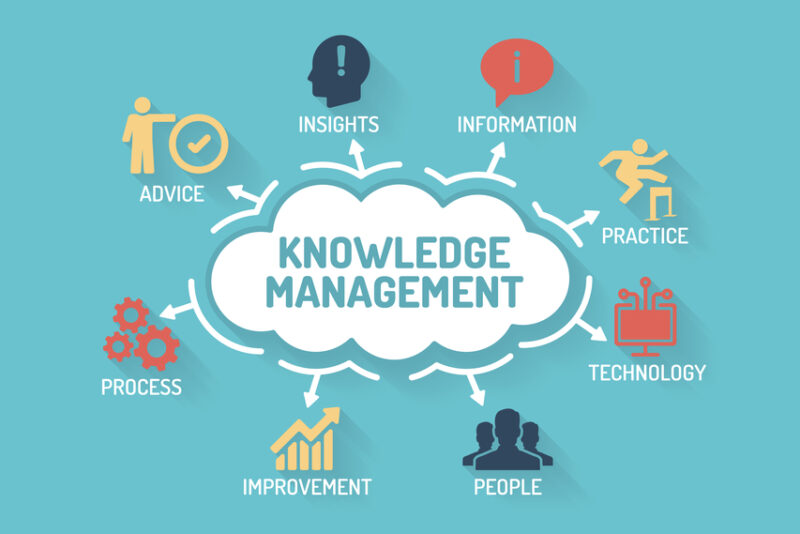Intelligence is not just the prerogative of individuals; it’s at the heart of successful organizations. Implementing a knowledge management system can be transformative, turning information into a strategic asset, streamlining processes, and driving innovation. In an age of information overload, being able to harness and utilize knowledge effectively sets a company apart from its competitors. Below, we discuss the myriad benefits such a system offers and the leaps an organization can make by adopting sophisticated management. Keep reading to uncover the powerful advantages for your business.
Elevating Organizational Intelligence Through Knowledge Management Systems
Knowledge management systems serve as the nerve center for organizational intelligence, consolidating data, expertise, and insights from various sources. The centralization of this information enables a coherent understanding of the organization’s collective knowledge base, enhancing strategic planning and policy development. Moreover, direct access to a wealth of organized education supports ongoing learning and skill development, enriching the entire organizational culture.
Incorporating a robust knowledge management framework also facilitates the identification of gaps within the organization. By pinpointing these areas, leaders can make targeted efforts to acquire necessary information or training, enabling the company to stay ahead of industry trends and maintain competitive advantage. As a dynamic system, it evolves alongside the organization, ensuring that its intelligence grows with every new experience and piece of information obtained.
The intersection of various knowledge management types within the system helps to cultivate diverse streams of thought and perspectives. This diverse ecosystem encourages an environment where innovation thrives as employees are exposed to a broader range of ideas and expertise. This intellectual diversity is the bedrock upon which companies can build stronger, more adaptive strategies for the future.
Streamlining Decision-Making Processes With Centralized Knowledge

Decision-making is substantially more efficient when backed by a comprehensive knowledge management system. Having a central source of verified information allows for quicker retrieval and analysis of data, facilitating timely and informed decisions. This efficiency leads to a more agile organization capable of making strategic pivots or responding to market changes with confidence.
A well-structured system eliminates redundancies in the information-gathering phase of decision-making. Leadership can steer clear of repetitive tasks and reduce instances of misinformed decisions that arise from information silos. This consolidation not only streamlines the process but also enhances the quality of decisions.
The system’s well-documented, data-driven insights foster a culture of transparency. Stakeholders at all levels can trace the rationale behind strategic choices, leading to greater consensus and shared commitment to outcomes. Additionally, this transparency builds trust within the organization, as employees understand and partake in the logic of company decisions.
Fostering Innovation and Collaboration via Knowledge Sharing
Collaboration is the foundation of innovation, and knowledge management systems are pivotal in breaking down barriers to sharing expertise across the organization. These systems stimulate collaborative efforts by enabling seamless communication and the cross-pollination of ideas among employees. When knowledge flows freely, employees can build on each other’s insights, driving innovative solutions to complex problems.
The ability to capture and disseminate tacit knowledge — the know-how accumulated from personal experience — further enhances the innovation ecosystem within a firm. Often difficult to articulate, this form of education becomes a valued asset when it can be shared and integrated into formal knowledge channels.
Virtual collaboration spaces powered by knowledge management technologies transcend geographical limitations, bringing together diverse teams. This global exchange widens the perspective of employees, allowing for a more inclusive and comprehensive approach to problem-solving and product development.
The Role of Knowledge Management in Boosting Employee Efficiency

Employee efficiency often hinges on the ease with which they can access and apply knowledge. Knowledge management systems streamline these processes, cutting down on time spent searching for information and enabling employees to perform at their best. Quick access to pertinent documents, procedures, and expertise empowers employees to complete tasks with greater precision and speed.
Personalized knowledge management experiences can cater to the unique role and context of each employee. By tailoring the information presented to their specific needs, the system reduces information overload, allowing employees to concentrate on the most relevant data. This targeted approach minimizes distractions and optimizes productive use of time.
Overall, the strategic implementation of a knowledge management system yields a more intelligent, agile, and collaborative organization. The efficiency gained, combined with the fostering of innovation and improved customer experiences, creates a formidable competitive edge. In harnessing the full potential of organizational knowledge, companies not only thrive but also redefine the standards of their industries.
Strengthening Customer Relationships Through Knowledge Sharing
A well-managed knowledge system can extend beyond internal operations to impact external relationships. Organizations that effectively manage and share expertise with customers often deliver better, more consistent experiences. When employees have immediate access to a centralized learning base, they are better equipped to respond to customer inquiries, resolve issues efficiently, and provide valuable insights. This strengthens customer trust and loyalty, as they perceive the organization as both knowledgeable and responsive.
Sharing knowledge with clients also opens doors for co-creation and collaboration, allowing businesses to anticipate customer needs more effectively.
Supporting Continuous Improvement and Learning
The evolution of a company depends on its ability to learn and improve continuously. Knowledge management systems support this by creating an environment where past experiences and learnings are easily accessible and applied to current challenges. Continuous learning becomes ingrained in the company’s culture, with employees able to tap into the collective wisdom accumulated over time.
By promoting an ethos of continuous improvement, these management systems reduce the likelihood of repeating mistakes, while also fostering a proactive approach to problem-solving. Employees can reference past solutions, enhancing both their efficiency and the company’s ability to innovate and adapt to new market conditions.
Enhancing Regulatory Compliance and Risk Management
Knowledge management systems are valuable for maintaining compliance with industry regulations and managing risks. These systems store critical documentation, procedures, and regulatory updates in an easily accessible format, ensuring that employees adhere to required standards. In industries where compliance is paramount, having a robust knowledge management system reduces the risk of errors, fines, or legal complications due to non-compliance.
Last Words

Overall, the strategic implementation of a knowledge management system yields a more intelligent, agile, and collaborative organization. The efficiency gained, combined with the fostering of innovation and improved customer experiences, creates a formidable competitive edge. In harnessing the full potential of organizational education, companies not only thrive but also redefine the standards of their industries.
Related Posts:
- What are the 5 Keys to UPS System Maintenance
- Why Invest in a Warehouse Intercom System?
- Can You Beat the System? Debunking Myths About Slot Machines
- 5 Valid Reasons to Put Money into a Home Security System
- Is Your Vendor Management Process Ready for the Next…
- What You Need to Know About Data Center Power Management








